Extra Challenge Comparison Worksheets for Ages 3-8
7 filtered results
-
From - To
Our Extra Challenge Comparison Worksheets for Ages 3-8 provide a fun and effective way to bolster your child's math skills. Designed to engage young learners, these worksheets focus on comparison concepts, such as greater than, less than, and equal to, enhancing their critical thinking and problem-solving abilities. Brightly colored graphics and age-appropriate challenges keep children excited about learning while developing their foundational math knowledge. These worksheets are perfect for reinforcing classroom lessons or as supplemental practice at home. Give your child a head start in math with our expertly crafted comparison worksheets, ensuring a solid mathematical foundation.
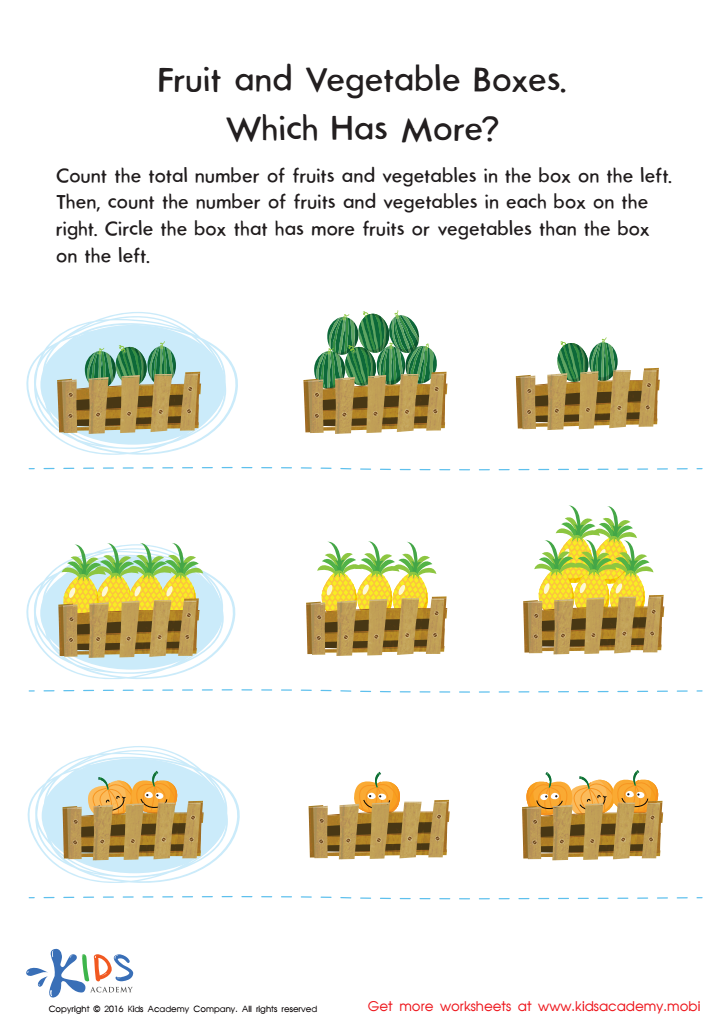

Which Has More? Size Worksheet
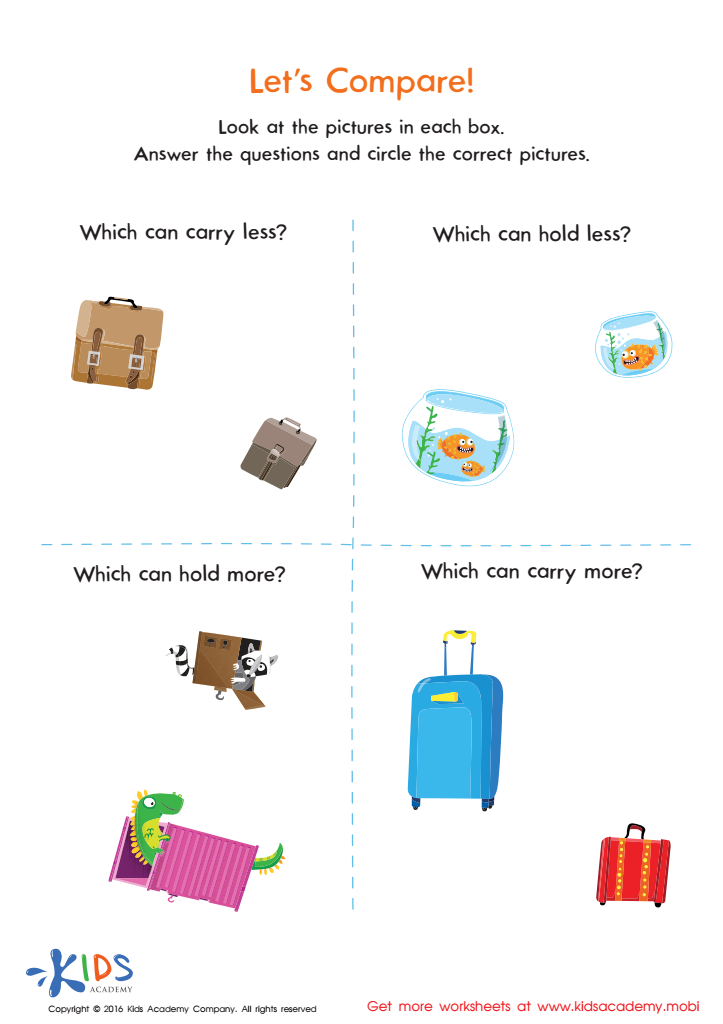

Let's Compare Worksheet: Big or Small
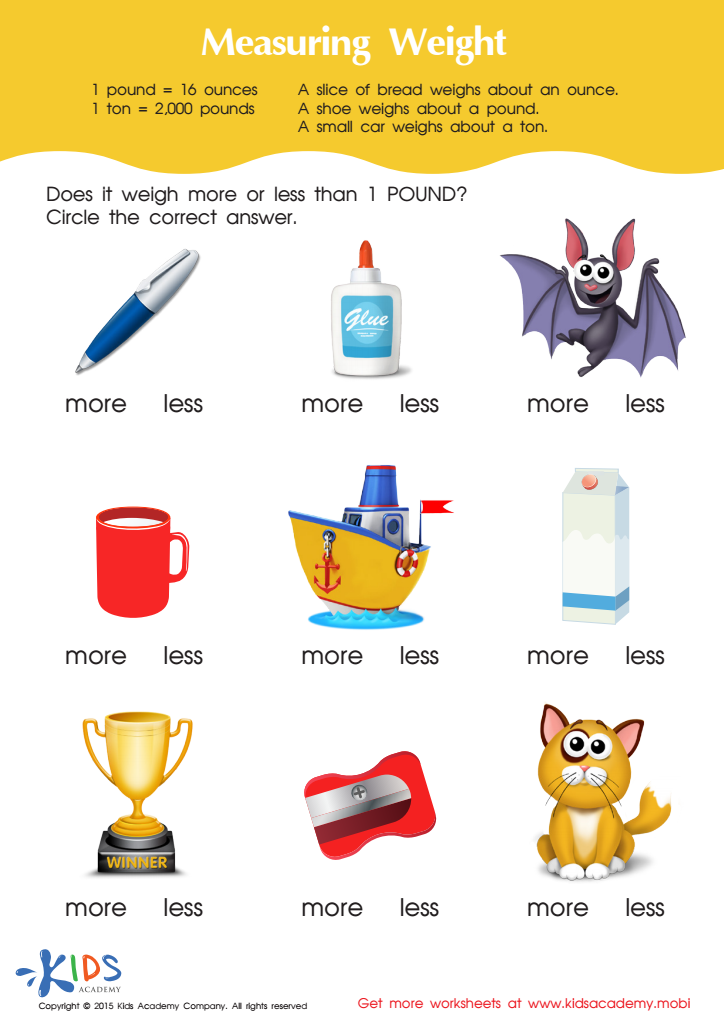

Measuring weight in pounds Worksheet
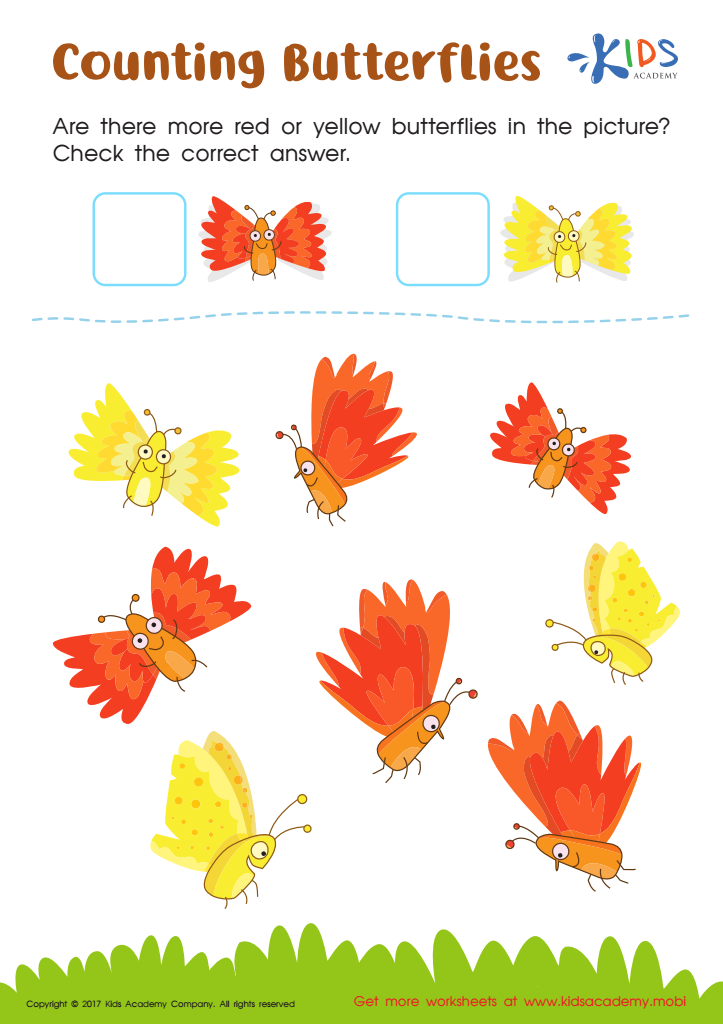

Counting Butterflies Worksheet
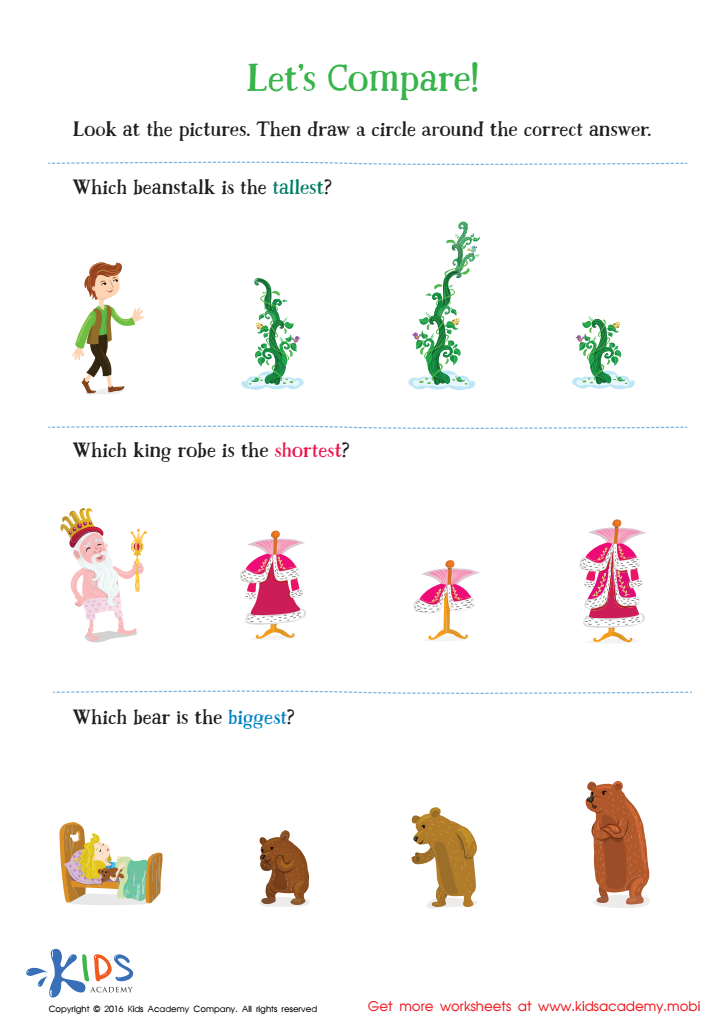

Fairy Tale Worksheet: Let's Compare
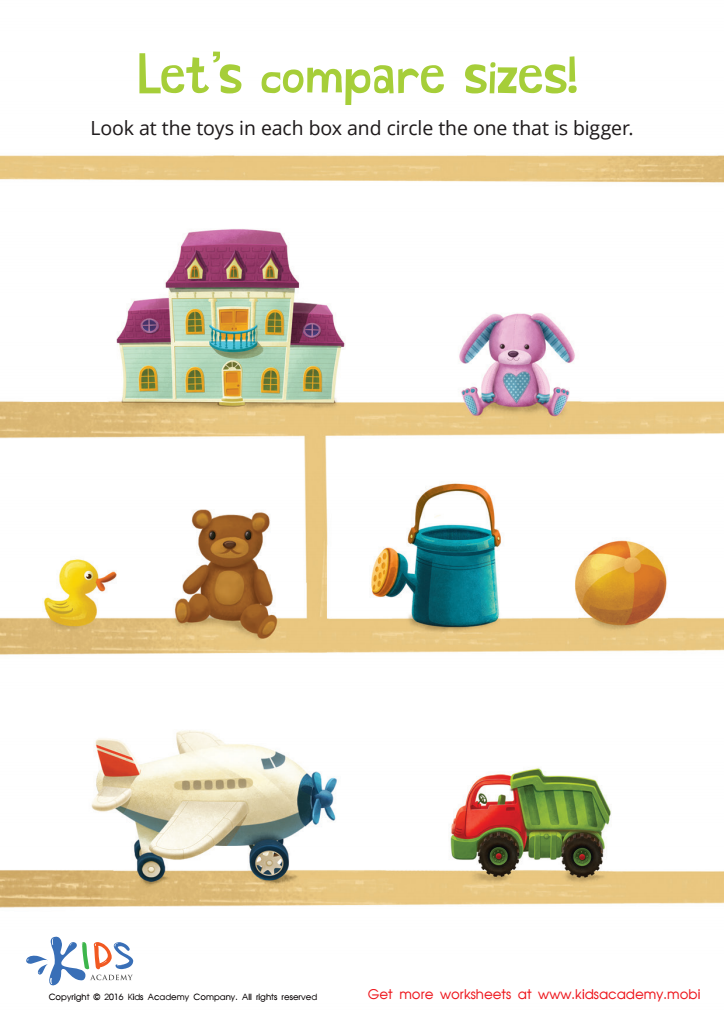

Classifying by Size Sorting Worksheet
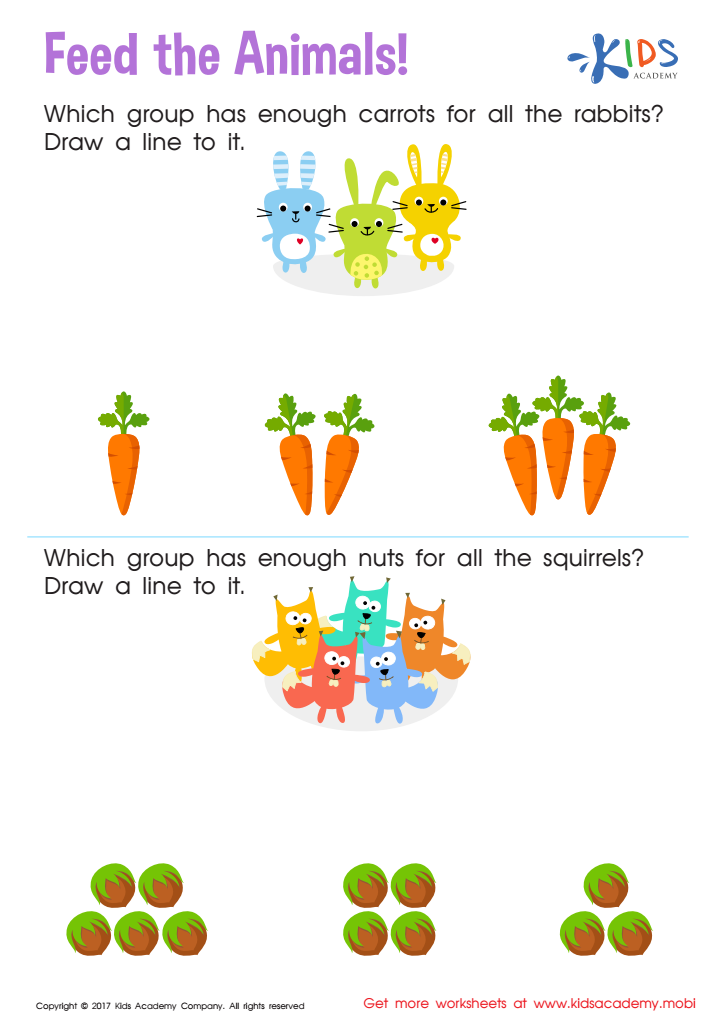

Count and Match: Feed the Animals Worksheet
Extra Challenge Comparisons for children ages 3-8 are crucial for fostering critical thinking and problem-solving skills during formative years. At this young age, children's brains are rapidly developing, making it an ideal time to introduce activities that challenge their cognitive abilities in a playful and engaging manner.
Firstly, such challenges help in developing children's reasoning and analytical skills. When comparing different objects, patterns, or scenarios, kids learn to observe closely, make distinctions, and categorize items based on various attributes. This strengthens their ability to process information and draw conclusions.
Secondly, extra challenge comparisons can enhance language and communication skills. As children figure out similarities and differences, they need to verbalize their thoughts, which in turn promotes vocabulary expansion and more sophisticated language use. They also learn to listen and comprehend other perspectives when engaging in group activities.
Additionally, these activities encourage perseverance and resilience. Faced with challenges, children learn to tackle tasks step-by-step and understand that effort pays off, which is an essential life skill.
Lastly, parents and teachers can use these comparisons to identify individual learning styles and preferences, allowing for more personalized educational approaches. Understanding a child's strengths and areas for improvement can guide parents and teachers in supporting each child's unique developmental path, laying a strong foundation for future learning.

 Assign to My Students
Assign to My Students





















